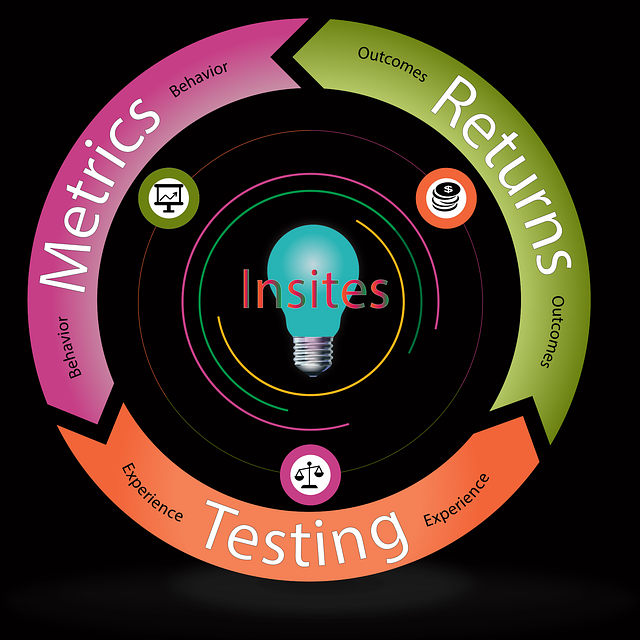Local SEO is crucial for e-commerce businesses targeting local customers. By optimizing through Google Business Profile, accurate NAP details, high-quality images, and engaging descriptions, e-commerce stores enhance visibility in local search results. Targeted keywords, listings, and content help attract nearby shoppers, boosting brand awareness and sales potential. Segmenting the target audience, using local keywords, and creating compelling GMB listings are key strategies. Encouraging customer reviews and ratings improves credibility. Integrating location-specific keywords into content increases regional visibility. Building backlinks with local influencers enhances site authority. Measuring performance through tools like Google Analytics is vital for refining Local SEO strategies.
In the dynamic landscape of e-commerce, Local SEO is no longer an option—it’s a necessity. This comprehensive guide delves into the intricacies of optimizing your online business for local searches, ensuring you connect with nearby customers effectively. From understanding the basics of Local SEO to leveraging Google My Business listings and crafting targeted content strategies, each step is crucial in enhancing visibility and driving local traffic. Discover how these tactics can transform your e-commerce presence, making it a true game-changer in today’s competitive market.
Understanding Local SEO for E-commerce: The Basics

Local SEO is a powerful strategy for e-commerce businesses aiming to attract nearby customers. It involves optimizing your online presence to rank higher in local search results, ensuring that potential clients can easily discover and visit your store. By implementing Local SEO tactics, you make your e-commerce platform visible to the right audience at the right time.
At its core, this involves claiming and optimizing Google Business Profile (formerly Google My Business), which is a free tool that allows businesses to manage their online presence across Google Search and Maps. You’ll want to ensure your business information is accurate, consistent, and compelling. This includes updating your NAP (name, address, phone number) details, adding high-quality images, and crafting engaging descriptions that highlight what makes your e-commerce store unique and convenient for local shoppers.
Why Local SEO Matters for Your Online Business

In today’s digital era, having an online presence is crucial for any business, especially e-commerce ventures. However, standing out in a crowded market and attracting local customers is a different challenge altogether. This is where Local SEO steps in as a powerful tool to bridge the gap between your business and your target audience. By optimizing your website and online listings for local search queries, you can ensure that when potential clients search for products or services related to your niche within their vicinity, your e-commerce store appears at the top of the results.
Local SEO matters because it helps build a strong connection between your business and the community it serves. It enables customers to discover and engage with your online store, leading to increased brand visibility, higher click-through rates, and ultimately, more sales. With effective Local SEO strategies, you can direct local foot traffic to your e-commerce platform, fostering a seamless and convenient shopping experience tailored to the needs of nearby customers.
Identifying Your Target Audience and Location

Identifying your target audience is a critical step in any successful Local SEO strategy for e-commerce businesses. Understanding who your ideal customers are, their needs, preferences, and behaviors allows you to tailor your marketing efforts effectively. Consider factors like age, gender, location, purchasing power, and shopping habits when segmenting your audience. This granular approach enables you to create personalized content and targeted campaigns that resonate with specific customer groups, increasing the likelihood of conversions.
Similarly, pinpointing your physical location is essential for Local SEO optimization. Whether you have a brick-and-mortar store or serve customers primarily within a certain region, knowing your target area helps in optimizing your online presence accordingly. Incorporate local keywords and phrases into your website content, listings, and marketing materials to signal to search engines that your business caters to a specific geographic location. This ensures that when potential customers search for products or services nearby, your e-commerce platform appears prominently in relevant searches.
Optimizing Your Website for Local Searches

Optimizing your website for local searches is a crucial aspect of successful Local SEO. This involves ensuring that your online presence accurately reflects your physical location and the services or products you offer in that area. Start by claiming and verifying your Google Business Profile, which allows search engines to identify and display your business in local results. Ensure all listing details are up-to-date, including address, opening hours, and contact information. Incorporate relevant local keywords naturally into your website content, such as city names or regional terms, to signal to search engines that your business is locally focused.
Additionally, optimize your site for mobile users since many local searches originate from smartphones. Ensure fast loading times, a responsive design, and clear calls-to-action to enhance user experience. Local citations on other reputable websites also contribute to your Local SEO efforts. Encourage customers to leave reviews on relevant platforms and directories to build trust and credibility with potential clients in your vicinity. Regularly update your website content with local events, promotions, or news to keep your audience engaged and search engines interested.
Creating Compelling Google My Business Listings

Creating compelling Google My Business (GMB) listings is a crucial component of any successful Local SEO strategy for e-commerce businesses. These listings act as a bridge between local customers and your online store, providing essential information at a glance. Optimize each listing with accurate business details, including address, operating hours, and contact information. Go the extra mile by adding high-quality images that showcase your products or services, as visual elements significantly enhance user experience.
Use descriptive and engaging language to write compelling descriptions that reflect your brand’s unique value proposition. Incorporate relevant keywords naturally to improve search visibility, ensuring potential customers can easily discover your business when searching for local products or services online. Regularly update your GMB listings with promotions, events, or new offerings to keep them dynamic and encourage repeat engagement.
Leveraging Reviews and Ratings to Boost Visibility

Local businesses with an e-commerce presence can significantly enhance their Local SEO efforts by leveraging customer reviews and ratings. Positive reviews not only boost credibility but also act as social proof, encouraging potential customers to choose your business over competitors. When customers leave reviews on platforms like Google, Yelp, or Facebook, it increases the visibility of your local business in search results, making it easier for locals to discover your products or services.
Additionally, incorporating ratings into your marketing strategy can further strengthen your Local SEO. Displaying customer ratings on your website and social media profiles demonstrates trustworthiness and helps establish a positive image. By encouraging customers to share their experiences, you create valuable content that search engines can index, thereby improving your local listings’ performance and driving more targeted traffic from nearby customers searching for products or services in your niche.
Utilizing Local Keywords and Content Strategies

In the realm of Local SEO for e-commerce, crafting a robust strategy involves leveraging local keywords and content strategies to connect with nearby customers. By integrating location-specific terms into your website’s content, product descriptions, and meta tags, you signal to search engines that your business caters to a regional audience. This is key for appearing in local search results, allowing potential buyers within a specific geographic area to discover your online store.
Implementing these strategies requires a deep understanding of your target market and their language. Incorporate phrases like “best [product] near me” or “[city] [product] specialists” naturally throughout your website’s copy. Additionally, creating location-focused content, such as blog posts highlighting local events or offering neighborhood-specific product recommendations, can enhance your site’s relevance to nearby searchers. This multifaceted approach ensures that when potential customers in your target area conduct local SEO searches, your e-commerce platform rises to the top of the results.
Building Backlinks with a Local Focus

Building backlinks with a local focus is a strategic move in the realm of Local SEO for e-commerce businesses. These links, specifically from local websites and online directories, act as digital endorsements, enhancing your online visibility within a certain geographic area. By aligning with local influencers, businesses, or community organizations, you can earn high-quality backlinks that signal to search engines your strong regional connections.
This approach not only boosts your site’s authority but also improves its relevance in local search results. Ensure the backlinks are from reputable and relevant sources—local blogs, neighborhood forums, city-specific business directories, or industry associations operating within your target region. These links should accurately represent your e-commerce platform’s local presence and offerings, reinforcing the message that your business is an integral part of the community it serves.
Measuring and Analyzing Your Local SEO Performance

Measuring and analyzing your Local SEO performance is crucial for e-commerce businesses aiming to attract nearby customers. Utilize tools like Google Analytics and Search Console to track keyword rankings, organic traffic, and click-through rates specific to location-based queries. By monitoring these metrics, you gain insights into which strategies are resonating with your target audience in the local market.
Regularly review and analyze the data to identify trends, areas for improvement, and opportunities to optimize your website and marketing campaigns. Pay close attention to local citations, business listings, and reviews as they significantly impact visibility and trust among potential customers searching for products or services nearby.
